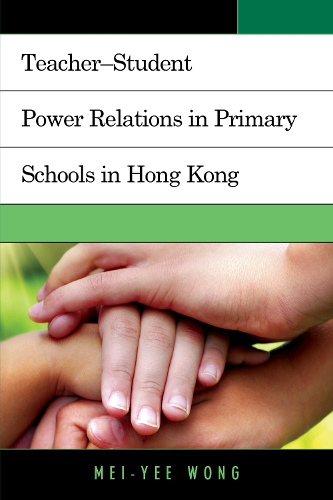
TeacherStudent Power Relations in Primary Schools in Hong Kong
(Hardback)
Publishing Details
TeacherStudent Power Relations in Primary Schools in Hong Kong
By (Author) Mei-Yee Wong
Bloomsbury Publishing PLC
Lexington Books
11th December 2014
United States
Classifications
Professional and Scholarly
Non Fiction
Educational psychology
Educational administration and organization
Primary and middle schools
372.95125
Physical Properties
Hardback
146
Width 160mm, Height 237mm, Spine 18mm
354g
Description
This book examines, from a sociological perspective, teacher-student power relations in classroom learning and teaching. The case study consists of four Hong Kong primary schoolsand sixteen classrooms thereinthat were selected as research sites to explore the concept of teacher-student power relations. Observations, individual interviews, and document analysis were the main data collection methods employed. Wong provides the historical context for the issue of teacher-student power relationship by reviewing the traditional Chinese cultures and values, in particular the values of respect for authority and for teachers, and demonstrates the intermingling of Chinese and Western cultures in contemporary Hong Kong Chinese society. She reviews the major educational initiatives carried out in Hong Kong since the 1970s, showing how Western educational policies promoting student-centric teaching modes have encouraged changes in classroom culture. With reference to the observed seventy-three lessons, the study identified three patterns of teacher-student power relationsTeacher Domination, Relatively Balanced Opportunity for Power Sharing, and Student Self-Empowermenteach involving different degrees of power being exercised by teacher and students. The coexistence of these three power patterns and the two corresponding power situations (student empowerment and disempowerment) can be explained as the result of multileveled, intertwined interactions among six factors related to social culture, education policy, school and classroom contexts, and to the individual players concerned. The book thus contributes to the understanding of teacher-student power relations in the context of Hong Kong by proposing a theoretical framework that reflects local socio-cultural, educational, and school contexts.
Reviews
Mei-Yee Wongs book, in the grand sociological tradition of Waller, Jackson, Woods, and Hargreaves, gives us a thoroughly contextualized study of student power and resistance in Hong Kong classrooms. Her research results not only inform contemporary theory by contributing a non-Western perspective, but also rejuvenate the embryonic studies of power relations in Hong Kong schools. -- Gerard A. Postiglione, The University of Hong Kong
This is indeed a worthwhile book for both academics and practitioners who are interested in the relationship between teachers and students. It presents a comprehensive yet readable overview of power distribution in classrooms in Hong Kong, a city with sophisticated cultural and historical context. Based on the research and abundant data from four primary schools, Wong identifies three patterns of teacherstudent power relations and reveals that the factors that influence these interactions are multifaceted and intertwined. -- Ruifang Xu, East China Normal University
This is not just a book on Hong Kong schools. Readers will find much to learn about crucial factors in student empowerment or disempowerment that applies as well to classrooms, schools, and educational systems in Western societies. Mei-Yee Wongs case study provides a marvelous close-up view on power relations between teachers and students that is based on a great number of observations, interviews, and documents collected on-site. Wong knows schools, she knows theory, and she is a fine writer: just the right ingredients for a highly instructive and enjoyable reading! -- Wolfgang Althof, University of Missouri-St. Louis
Author Bio
Mei-Yee Wong is lecturer in the Department of Social Sciences at the Hong Kong Institute of Education.
